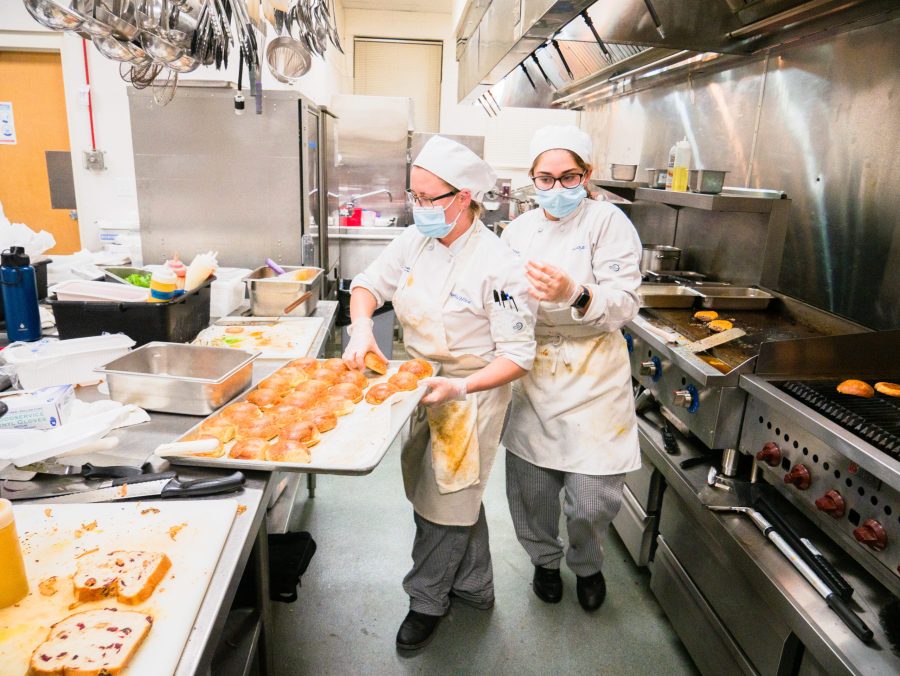In spite of the challenges of COVID-19, the BJU Bistro completed its most successful season this October in its 15 years of history, according to David Miller, a culinary arts faculty member and instructor of the practicum that conducts the Bistro.
Rob Hansen, chief instructor and program coordinator for the Culinary Arts major, said the changes for the program were initially minimal.
“We are already attentive to sanitation,” Hansen said. “We’re accustomed to protecting the food from contamination: protecting each other from contamination is a little different.”

the Bistro’s COVID-19 requirements. Photo: Nathaniel Hendry
One of the ways the Culinary Arts department avoids contamination is through ServSafe, a certificate for safe food and beverage production offered by the U.S. National Restaurant Association. ServSafe also offers several certificates related to COVID-19, which have been added to the culinary arts program specifically for this semester.
A difficult problem the students encounter now is the shortage in sterile gloves, an obstacle complicated by using the same type of gloves as those used in medical environments.
As for social distancing, Hansen said the major has very few electives and the classes remain composed of mostly the same students, which limits contact between people. But distancing became complicated in the kitchen. Although the culinary arts department has a large enough kitchen to distance for classes, Hansen said controlling the distancing with customers in the Bistro was more difficult to manage.
But the biggest problem for foodservice businesses during COVID-19 has less to do with the serving staff and a lot more to do with reaching out to customers, according to Hansen.
“Just getting the word out there that you’re actually open is probably one of the hardest things,” Hansen said. Normally, a customer can look online for operating hours. With the rise of COVID-19, that information became subject to rapid changes.
To address these challenges, the Bistro made a few changes, starting with their serving times. The Bistro moved to suppertime and opened two days a week instead of once a week for lunch, a change that allowed more students the time to wait on food to be cooked instead of running to classes, Miller said.
The Bistro also partnered with the University Marketing Assocation for a massive marketing effort involving posters, flyers and videos, besides the Bistro’s own Instagram page at bjubistro. While these changes have led to the Bistro’s most successful semester to date, they have not recreated the same experience as in past years for students.

According to Miller, the instructor of the Bistro, the class simulates working in a restaurant, a goal that became challenging during the pandemic. Miller said customers also make the restaurant a realistic experience for the students. “The most important thing in order for it to be real is customers,” Miller said. During the pandemic, social distancing and sanitizing practices have made engaging with customers difficult.
Elizabeth Whiting, a culinary student in her second year in the two-year program, said despite the increase in marketing, the students miss out on a lot of direct contact with customers.
“We’ll go out in the dining area and see how they’re doing, but besides that . . . we don’t really get a lot of feedback from them,” Whiting said.
Although the class that runs the Bistro is replaced by a class in fine dining in the spring, Miller looks forward to next fall, when he hopes the pandemic will have passed and the Bistro can be opened to full capacity again. “The experience will be a lot more valuable,” Miller said. “Hopefully we can just take care of more people. That’s kind of the challenge.”
























































